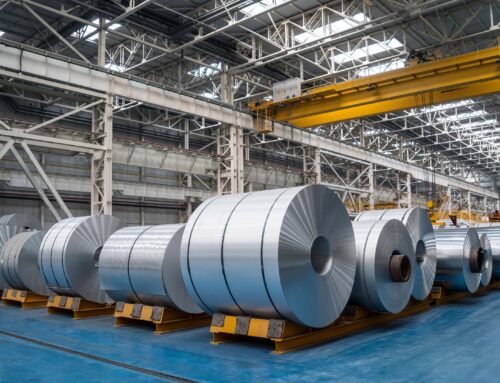Should You Still Invest During a Stock Market Downturn? It Depends on This One Question.
April 11, 2025
Stocks have been incredibly volatile in recent weeks, and despite the most recent market rally, many investors are feeling pessimistic about the future as recession risks increase. However, as daunting as times like these are, there’s also a silver lining: Stocks are on sale.
Stocks have been incredibly expensive the last few years as the market surged. In the past five years alone, the S&P 500 (^GSPC -3.46%) is up by close to 100%, as of this writing. That’s fantastic news for investors, but it also means that buying into the market has been costlier than ever.
Now that the market is tumbling, savvy investors are keen to take advantage of those lower prices and snag stocks at a discount. Although that can be a smart way to build long-term wealth, it won’t be right for everyone. Before you buy, ask yourself this one question to decide whether it’s safe for you to invest right now.

Image source: Getty Images.
Your financial situation will play a key role in your decision
If you’re considering taking advantage of these lower-priced stocks, first ask yourself whether your financial situation is stable enough for that right now.
There’s a good chance stocks could continue tumbling in the coming months, and it’s wise to keep your money in the market until prices begin to recover. Withdrawing your money after stocks have tanked could mean selling your investments for far less than you paid for them, locking in steep losses.
If you don’t have an emergency fund or are at a higher risk of job loss, it may be wise to focus on those priorities first. Having enough savings to cover a few months’ worth of expenses can make it easier to leave your investments untouched in the case of a financial emergency — potentially saving you thousands of dollars in avoided losses.
Paying down high-interest debt, like credit card debt, can also be a smart move. If we face a recession, high debt repayments can quickly eat away at your budget. By paying down as much as you can now, you can free up more cash later if you need it.
The case for continuing to invest now
You don’t necessarily need to avoid the market entirely, even if you’re still working on improving your financial health. Investing consistently is one of the most effective ways to build long-term wealth, and building it into your budget could result in major gains down the road.
Dollar-cost averaging is a strategy that involves investing at regular intervals throughout the year to balance out the market’s highs and lows. Sometimes you’ll invest at higher prices, while other times you can snag investments at a discount.
If you only invest while the market is thriving, you’ll end up paying far more for your stocks over time than if you were to also buy during the low points. Even if you can’t afford to invest much right now, contributing even small amounts can set you up for serious gains when the market recovers.
To be clear, if more volatility is coming, it’s best to assume that any money you invest now won’t see any positive returns for the foreseeable future. But if you can afford to leave your money in the market for at least five to 10 years, you could build substantial wealth by investing during the downturns.
Investing is a highly personal experience, and whether you choose to buy now will depend on your overall financial health. If money is tight and your situation is higher risk, it may be wise to avoid the market for now. But if you have some spare cash and a long-term outlook, continuing to invest could supercharge your net worth over time.
Katie Brockman has no position in any of the stocks mentioned. The Motley Fool has no position in any of the stocks mentioned. The Motley Fool has a disclosure policy.
Search
RECENT PRESS RELEASES
Related Post




